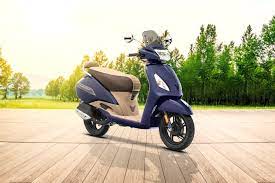Introduction
Its excellent fuel efficiency and comfortable ride make the TVS Jupiter Mileage a popular choice among scooter riders. In this article, we’ll explore the various factors that can affect the mileage of your TVS Jupiter and provide some tips on how to get the most out of your scooter.
Understanding TVS Jupiter Mileage
The TVS Jupiter is powered by a 109.7cc, single-cylinder engine that produces 7.47 bhp of power and 8.4 Nm of torque. The scooty is equipped with a CVT gearbox and has a claimed mileage of 62 kmpl. However, the actual mileage you get from your TVS Jupiter can vary depending on a number of factors.
Factors That Affect TVS Jupiter Mileage
- Riding style: One of the biggest factors that can affect the mileage of your TVS Jupiter is your riding style. Aggressive acceleration and braking can reduce fuel efficiency, so it’s important to maintain a steady speed and accelerate and brake smoothly.
- Terrain: The terrain you ride on can also have an impact on your TVS Jupiter’s mileage. Riding on hilly or uneven terrain can require more throttle input and reduce fuel efficiency.
- Traffic: Stop-and-go traffic can also affect the mileage of your TVS Jupiter. Frequent stops and starts can increase fuel consumption and reduce mileage.
- Maintenance: Regular maintenance is important to ensure that your TVS Jupiter is running efficiently. A poorly maintained scooter can consume more fuel and reduce mileage.
Tips for Improving TVS Jupiter Mileage
- Maintain a steady speed: As mentioned earlier, maintaining a steady speed is important for improving fuel efficiency. Try to avoid sudden acceleration and braking, and maintain a consistent speed.
- Avoid overloading: Carrying too much weight on your TVS Jupiter can reduce fuel efficiency. Try to avoid carrying heavy loads whenever possible.
- Keep tires properly inflated: Proper tire pressure is important for both safety and fuel efficiency. Make sure your TVS Jupiter’s tires are inflated to the recommended pressure.
- Regular maintenance: Keeping your TVS Jupiter well-maintained can help improve fuel efficiency. Make sure to follow the recommended service schedule and keep your scooter in good condition.
Conclusion
The TVS Jupiter is a great choice for riders who are looking for a comfortable and fuel-efficient scooter. By following these tips and understanding the factors that can affect mileage, you can get the most out of your TVS Jupiter and enjoy a long-lasting and reliable ride.
FAQs
1. How often should I get my TVS Jupiter serviced?
It’s recommended that you get your TVS Jupiter serviced every 5,000 km or 6 months, whichever comes first.
2. What is the average lifespan of a TVS Jupiter?
With proper maintenance, a TVS Jupiter can last for up to 10 years or more.
3. Can I improve my TVS Jupiter’s mileage by using a different type of fuel?
It’s not recommended to use a different type of fuel than what is specified by the manufacturer, as this can damage your scooter’s engine.
4. Is it safe to ride a TVS Jupiter on the highway?
Yes, the TVS Jupiter is capable of highway speeds and is a safe choice for longer rides.
5. How can I tell if my TVS Jupiter is consuming too much fuel?
If you notice a significant decrease in mileage or if your scooter is running poorly, it may be a sign that your TVS Jupiter is consuming too much fuel. It’s recommended that you take your scooter to a mechanic for diagnosis and repair.
Overall, getting the most out of your TVS Jupiter’s mileage requires a combination of good riding habits and proper maintenance. By following the tips outlined in this article, you can improve fuel efficiency and enjoy a more economical ride. Remember to also pay attention to any changes in your scooter’s performance or mileage, as this can be a sign of underlying issues that need to be addressed.
If you have any further questions about your TVS Jupiter’s mileage or maintenance, feel free to consult the owner’s manual or contact a certified TVS mechanic. With proper care and attention, your TVS Jupiter can provide years of reliable and efficient transportation.
